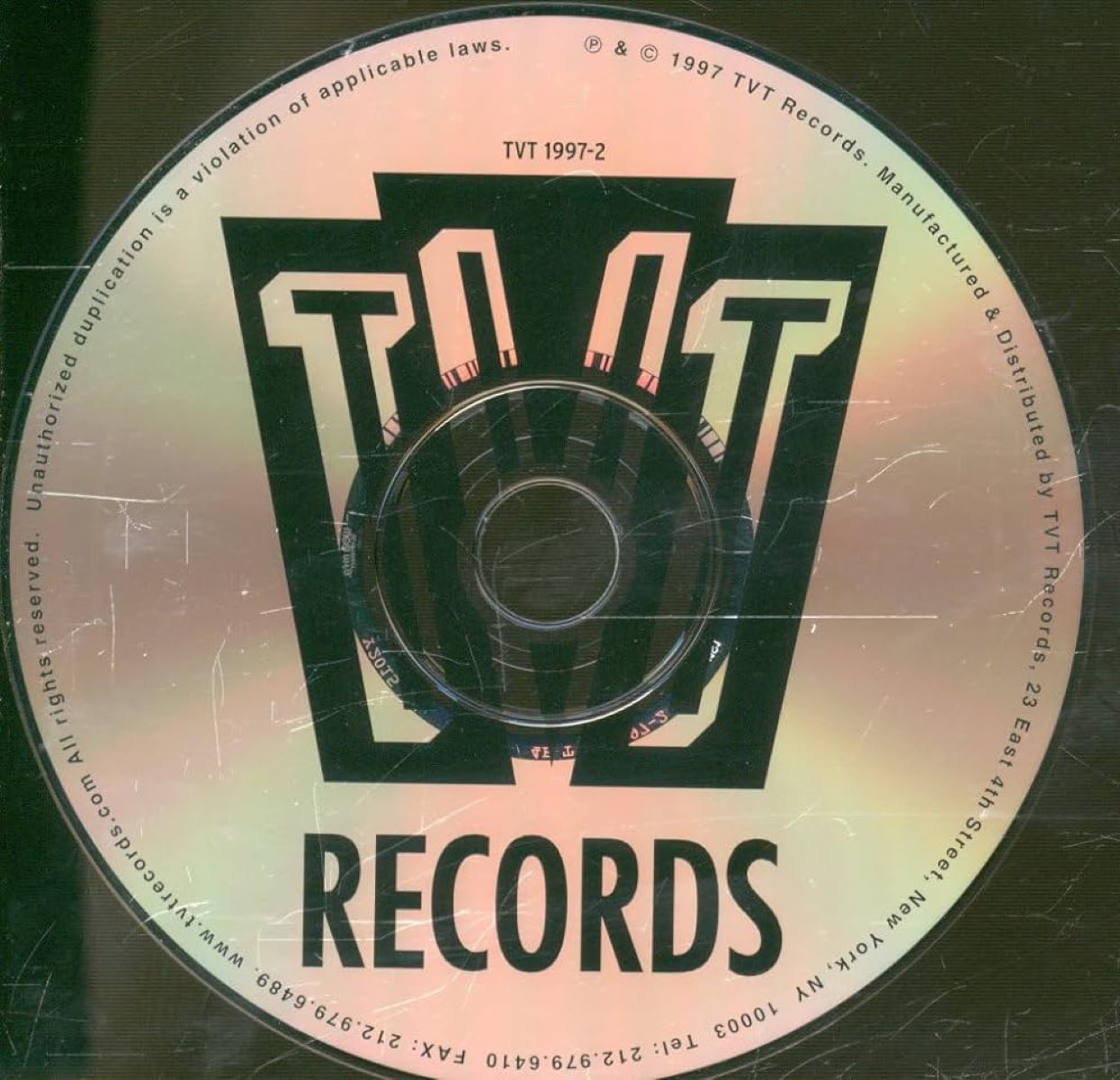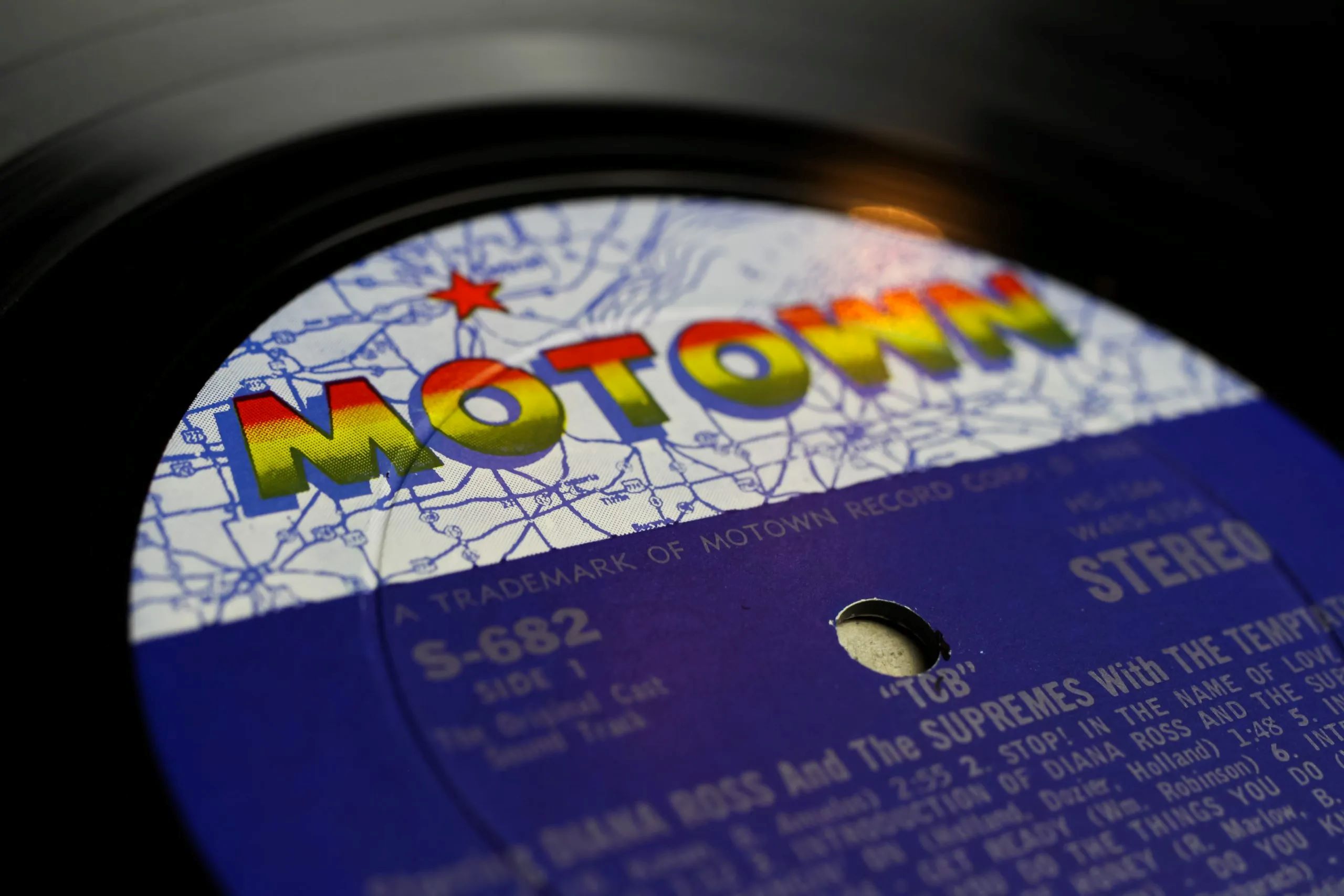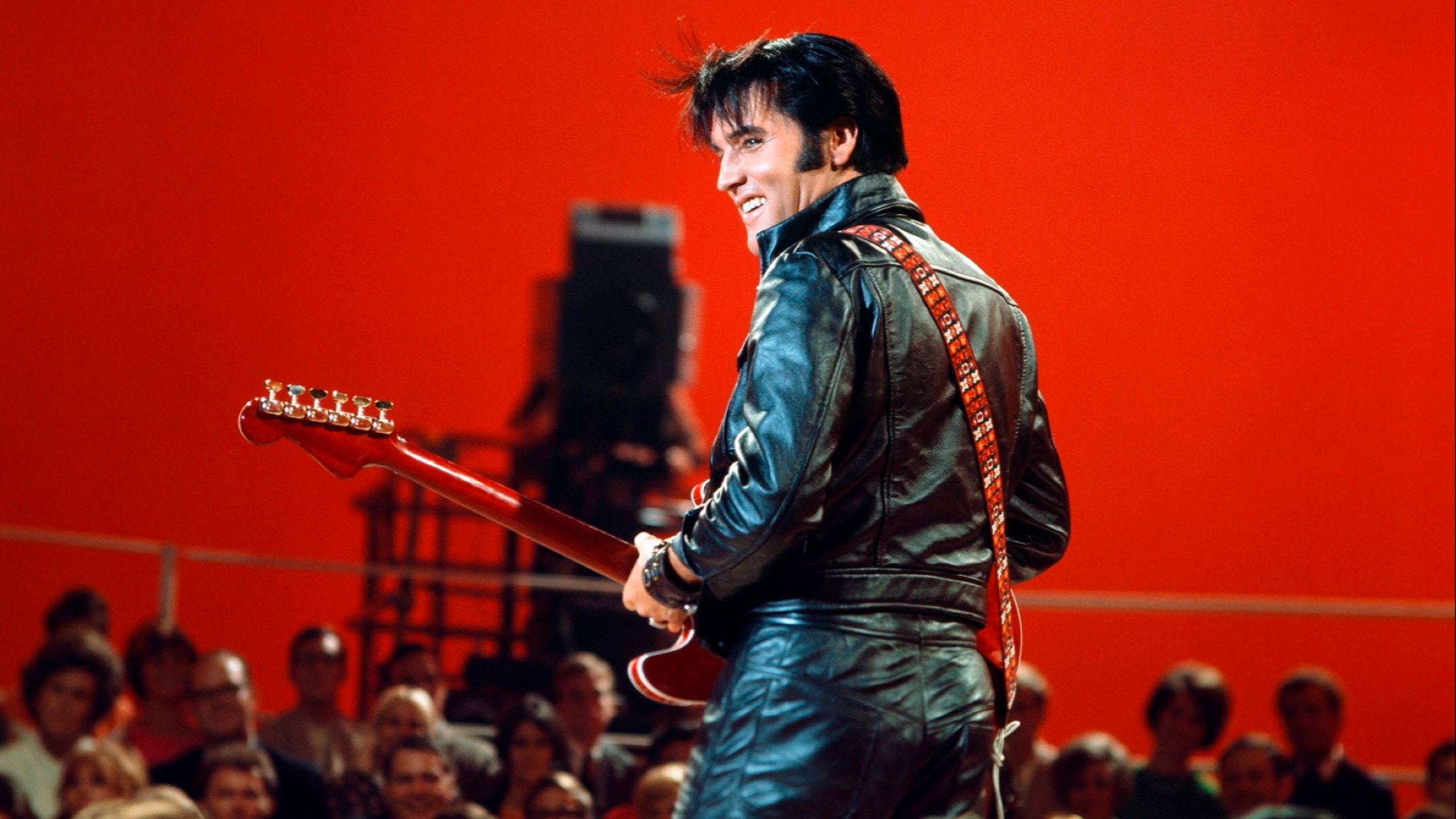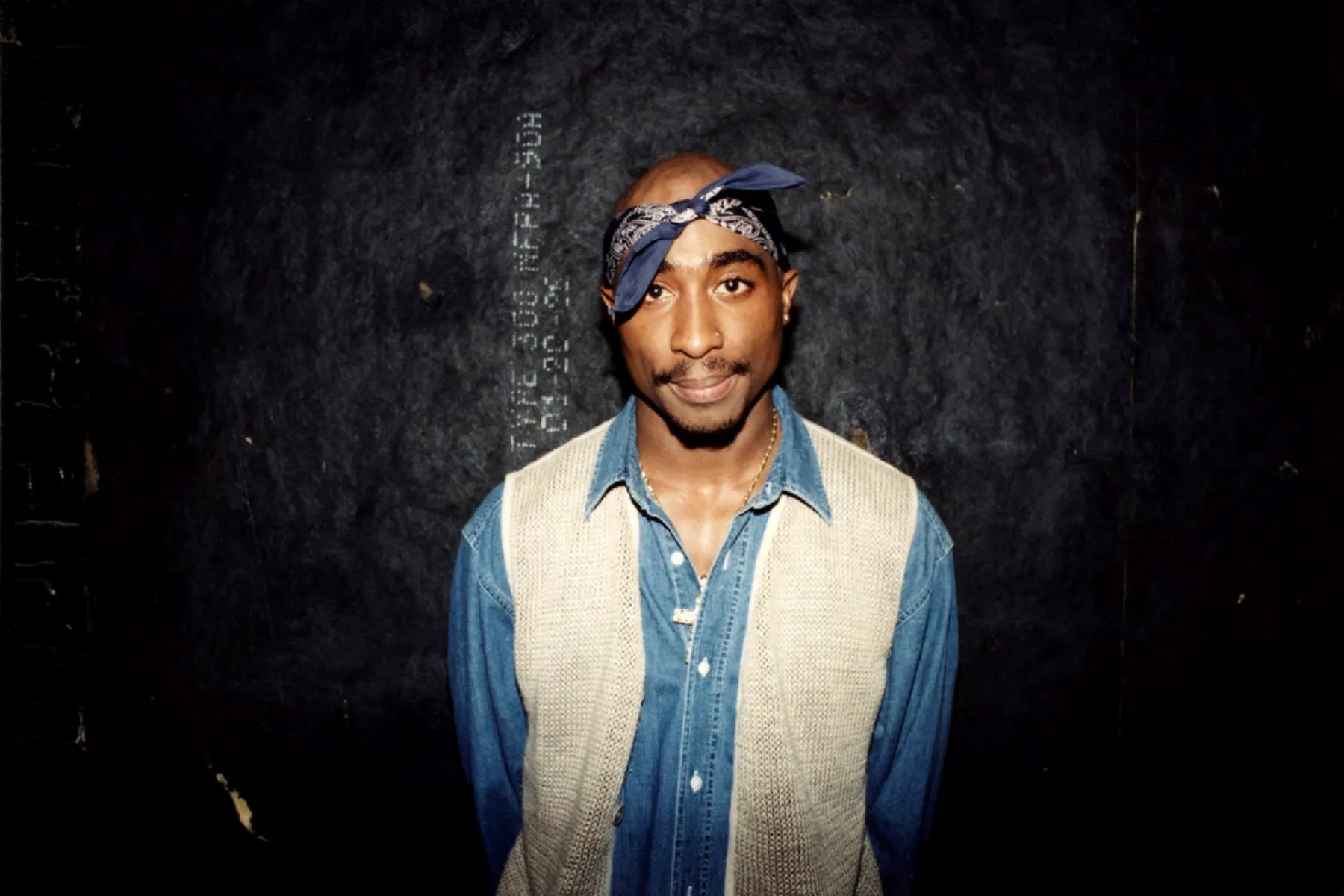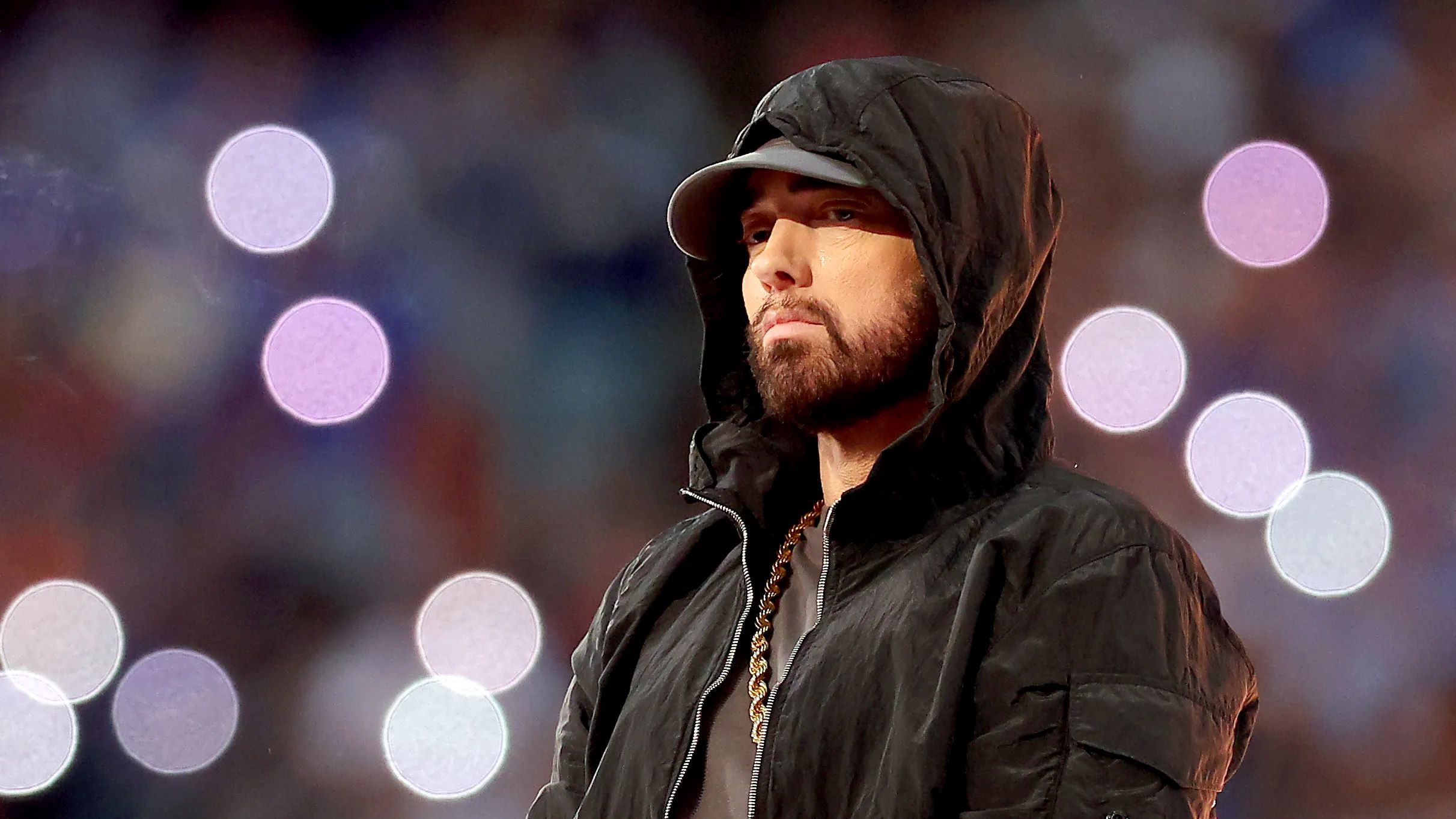Home>Production & Technology>Record Label>What Record Label Was Eric Clapton On?


Record Label
What Record Label Was Eric Clapton On?
Modified: January 28, 2024
Discover the record label that catapulted Eric Clapton's career. Uncover the iconic label that shaped his legendary sound and musical journey.
(Many of the links in this article redirect to a specific reviewed product. Your purchase of these products through affiliate links helps to generate commission for AudioLover.com, at no extra cost. Learn more)
Table of Contents
Introduction
A record label plays a crucial role in the music industry, as it is responsible for discovering, nurturing, promoting, and distributing music from talented artists. It serves as a platform for artists to reach a wider audience and helps shape their careers. One iconic musician who has had a significant impact on the music industry is Eric Clapton.
Eric Clapton, often referred to as “Slowhand,” is a legendary English guitarist, singer, and songwriter. He is renowned for his exceptional guitar playing skills and his contributions to various genres, including blues, rock, and pop. Clapton’s career spans several decades, and he has achieved extraordinary success as a solo artist and as a member of various bands.
Throughout his illustrious career, Clapton has been associated with several record labels, each representing a different phase of his musical journey. These labels have played a crucial role in shaping and defining Clapton’s sound, style, and artistic direction.
In this article, we will explore the record labels that Eric Clapton has been a part of throughout his career and how these partnerships have influenced his music.
Early Career
In the early stages of his career, Eric Clapton gained recognition as a member of several influential bands. One of his first notable endeavors was with the Yardbirds, a British rock group known for their bluesy sound. Clapton joined the Yardbirds in 1963 and quickly became known for his exceptional guitar skills. During his time with the Yardbirds, Clapton gained a reputation as a talented blues guitarist, establishing a foundation that would shape his future musical endeavors.
However, Clapton’s tenure with the Yardbirds was short-lived, as he left the band in 1965 to explore other musical opportunities. This decision led him to join John Mayall & the Bluesbreakers, where he further honed his blues guitar expertise and gained significant recognition. Clapton’s time with the Bluesbreakers laid the groundwork for his future success and propelled him into the spotlight as one of the greatest guitarists of his generation.
During this early phase of his career, Clapton had not yet signed with a specific record label as a solo artist. Instead, he primarily focused on collaboration with other musicians and bands to shape his musical style and gain experience. It was during this time that Clapton’s exceptional talent, distinctive sound, and soulful playing style began to capture the attention of music industry insiders, paving the way for his eventual solo career.
Although Clapton’s early career was marked by frequent collaborations and band membership rather than a record label affiliation, it was during this period that he developed a reputation as a guitar virtuoso. This reputation would ultimately draw the attention of record labels eager to cash in on his talent and potential.
The Yardbirds Era
During his time with the Yardbirds, Eric Clapton’s innovative guitar playing and bluesy sound played a significant role in shaping the band’s identity. Clapton’s blues influences, combined with the Yardbirds’ rock and pop sensibilities, created a unique and influential sound that garnered attention and praise from both fans and music critics alike.
Although the Yardbirds had found success with their earlier hits like “For Your Love” and “Heart Full of Soul,” it was Clapton’s arrival that brought a new level of musical depth and virtuosity to the band’s sound. Tracks like “Shapes of Things” and “I’m a Man” showcased Clapton’s distinctive guitar solos and drew attention to his extraordinary talent.
However, despite Clapton’s contributions, tensions within the band and disagreements regarding the direction of their music led to his departure in 1965. This marked the end of Clapton’s official association with the Yardbirds, but his time with the band laid the groundwork for his future musical endeavors.
The Yardbirds era played a crucial role in Eric Clapton’s career by providing him with a platform to showcase his incredible guitar skills and gain recognition as a rising star in the music industry. It was during this period that Clapton’s reputation as a talented and innovative guitarist began to take hold, setting the stage for his future success as a solo artist.
Although Clapton’s time with the Yardbirds was relatively short-lived, the impact he made on the band’s sound and legacy cannot be understated. His contributions helped elevate the Yardbirds to new heights and solidify their place in rock and roll history.
While Clapton’s departure marked the end of his official involvement with the Yardbirds, his time with the band served as a springboard for his solo career, leading him down a path of musical exploration and creative growth that would define his future success.
Cream and Polydor Records
After leaving the Yardbirds, Eric Clapton went on to form the supergroup Cream in 1966, alongside bassist Jack Bruce and drummer Ginger Baker. Cream quickly gained popularity for their unique blend of blues, rock, and psychedelic music. The band’s improvisational style and Clapton’s virtuosic guitar playing captivated audiences worldwide.
Cream’s sound was characterized by Clapton’s dynamic and expressive guitar solos, showcased in songs like “Sunshine of Your Love,” “Crossroads,” and “White Room.” Their music pushed the boundaries of traditional blues and rock, and they were widely regarded as one of the most influential bands of the late 1960s.
During Cream’s short but impactful existence, they released four studio albums, including their iconic “Disraeli Gears” and “Wheels of Fire.” These albums showcased Clapton’s exceptional guitar work and helped solidify his reputation as a guitar legend.
In terms of record labels, Cream was initially signed to the Polydor Records label in the United Kingdom. Polydor played a crucial role in promoting Cream’s music and expanding their reach among audiences. Their partnership with Polydor allowed Cream to release their groundbreaking albums and secure significant airplay on radio stations.
Polydor Records, known for its diverse roster of artists, provided Cream with the resources and support to reach a global audience. Through the label’s distribution network, Cream’s music reached fans worldwide, contributing to their meteoric rise in popularity.
However, despite their immense success, tensions emerged within the band, and Cream disbanded in 1968. The breakup marked the end of a remarkable era in Eric Clapton’s career, but his association with Polydor Records continued as he embarked on his solo journey.
After Cream’s dissolution, Clapton embarked on a solo career and released his self-titled debut album in 1970. This marked the beginning of his fruitful collaboration with Polydor as a solo artist. Polydor continued to support Clapton’s musical endeavors, and his solo albums, such as “Layla and Other Assorted Love Songs” and “461 Ocean Boulevard,” propelled him to even greater heights as a solo artist.
The affiliation with Polydor Records played a significant role in Eric Clapton’s career, both as a member of Cream and as a solo artist. The label’s support and reputation helped solidify his status as one of the greatest guitarists and songwriters of his generation.
Solo Career and RSO Records
Following the breakup of Cream, Eric Clapton embarked on a highly successful solo career that spanned several decades. As a solo artist, Clapton continued to showcase his exceptional guitar skills and diverse musical influences across various genres, including blues, rock, and pop.
During the early years of his solo career, Clapton signed with RSO Records, a label that played a pivotal role in shaping his musical journey. RSO Records, founded by music industry moguls Robert Stigwood and brothers Barry and Maurice Gibb of the Bee Gees, provided an ideal platform for Clapton’s creative expression.
Under RSO Records, Clapton released some of his most iconic and commercially successful albums. One of his most notable works during this period was the album “Slowhand” (1977), which featured the timeless classics “Wonderful Tonight” and “Lay Down Sally.” The album’s success solidified Clapton’s status as a solo superstar and showcased his ability to craft emotionally resonant and accessible songs.
In addition to “Slowhand,” Clapton released other acclaimed albums under RSO Records, such as “Backless” (1978) and “Another Ticket” (1981). These albums further demonstrated Clapton’s musical versatility, incorporating elements of blues, rock, and pop into his songwriting.
Riding the wave of his success with RSO, Clapton also collaborated with other artists, most notably on the soundtrack for the film “The Blues Brothers” (1980). His contributions to the soundtrack, including the hit single “She’s Waiting,” further expanded his reach and solidified his reputation as a respected musician.
However, despite the initial success, RSO Records faced financial troubles in the early 1980s, eventually leading to its demise. This forced Clapton to seek a new label to continue his musical journey.
While his time with RSO Records came to an end, the label played a significant role in elevating Clapton’s solo career and establishing him as a household name. The success and critical acclaim achieved during his tenure with RSO laid the foundation for the next phase of his musical journey.
Clapton’s solo career continued to flourish beyond his years with RSO Records, as he partnered with different labels that contributed to further groundbreaking and memorable albums throughout his extensive career.
Warner Bros. Records
After parting ways with RSO Records, Eric Clapton signed with Warner Bros. Records, a renowned label that has been home to an impressive roster of artists across various genres. The partnership with Warner Bros. Records marked a new chapter in Clapton’s musical journey and brought forth a string of successful albums.
One of the pivotal albums released under Warner Bros. was “Money and Cigarettes” (1983). The album showcased Clapton’s musical evolution, featuring a mix of blues-inspired tracks and radio-friendly pop-rock songs. Tracks like “I’ve Got a Rock ‘n’ Roll Heart” and “The Shape You’re In” highlighted Clapton’s ability to combine catchy melodies with his signature guitar playing.
Clapton’s collaboration with Warner Bros. continued with the release of “Behind the Sun” (1985). This album saw Clapton experimenting with a more polished and commercial sound, including the popular single “Forever Man.” The album achieved commercial success and further solidified Clapton’s reputation as a chart-topping artist.
The partnership between Clapton and Warner Bros. Records extended beyond the 1980s. In the early 1990s, Clapton released the critically acclaimed and Grammy Award-winning album “Unplugged” (1992), featuring stripped-down acoustic renditions of his classic songs. The album became one of Clapton’s best-selling records and showcased his versatility as a performer.
Another noteworthy release during Clapton’s tenure with Warner Bros. Records was the album “Pilgrim” (1998), which showcased his introspective songwriting and marked a return to a more bluesy and soulful sound. The album received positive reviews and reflected Clapton’s artistic exploration.
While his time with Warner Bros. Records brought forth several successful albums, Clapton eventually moved on to explore other avenues in his musical career. Nonetheless, his collaboration with Warner Bros. Records allowed him to reach a broader audience, further solidifying his status as a music icon.
It is worth noting that Clapton’s association with Warner Bros. Records went beyond album releases. The label also supported Clapton in various live performances, including his iconic “MTV Unplugged” performance in 1992, which catapulted him to new heights of popularity.
Overall, the affiliation with Warner Bros. Records provided Eric Clapton with a platform to continue his musical growth and creativity, releasing albums that showcased his diverse range as an artist while maintaining his iconic guitar-driven sound.
Reprise Records
After his time with Warner Bros. Records, Eric Clapton joined Reprise Records, a subsidiary of the Warner Music Group. Reprise Records, known for its diverse roster of artists and commitment to creative freedom, provided Clapton with a platform to continue his musical journey and explore new creative directions.
Clapton’s partnership with Reprise Records resulted in the release of several notable albums that showcased his evolving sound and musical exploration. One such album was “From the Cradle” (1994), a critically acclaimed project that paid homage to Clapton’s blues roots. The album featured Clapton’s interpretations of blues classics and demonstrated his exceptional skill as a blues guitarist.
Clapton’s collaboration with Reprise continued with the release of the album “Pilgrim” (1998), which showcased his introspective songwriting and marked a return to a more bluesy and soulful sound. The album garnered positive reviews and demonstrated Clapton’s artistic growth and maturity.
In addition to his solo releases, Clapton also collaborated with other renowned artists during his tenure with Reprise Records. One notable collaboration was his involvement in the platinum-selling album “B.B. King & Eric Clapton – Riding with the King” (2000), in which he joined forces with the legendary blues musician B.B. King. The album received critical acclaim and showcased Clapton’s ability to seamlessly merge his distinctive style with King’s timeless blues sound.
Beyond album releases, Clapton and Reprise Records also collaborated on live recordings. One standout example is the release of “One More Car, One More Rider” (2002), a live album that captured Clapton’s electrifying performances during his 2001 world tour. The album showcased Clapton’s exceptional guitar playing and the energy of his live shows.
While his time with Reprise Records marked a fruitful period in Clapton’s career, he eventually moved on to explore other ventures. Nonetheless, his collaboration with Reprise Records allowed him to continue pushing musical boundaries and solidify his place as a blues and rock icon.
The partnership with Reprise Records facilitated Clapton’s artistic growth by providing him with a supportive label that embraced his creative vision. Together, they released albums that showcased Clapton’s versatility as a songwriter, singer, and guitar virtuoso.
Overall, Eric Clapton’s association with Reprise Records was a crucial period in his career, allowing him to further establish his musical legacy while exploring new avenues of artistic expression.
Duck Records
In the late 1970s, Eric Clapton established his own record label called Duck Records, which marked a significant milestone in his career. The founding of Duck Records gave Clapton complete creative control over his music, allowing him to pursue his artistic vision without interference from a major label.
Under Duck Records, Clapton released some of his most influential and critically acclaimed albums. One notable release through the label was “Backless” (1978). The album featured a mix of original songs and cover tracks, showcasing Clapton’s prowess as a vocalist and guitarist. “Promises” and “Watch Out for Lucy” were among the standout tracks from the album, which generated commercial success and further cemented Clapton’s status as a solo artist.
Duck Records also served as a platform for Clapton to release live recordings. One notable example is “Just One Night” (1980), a double live album that captured Clapton’s energetic and captivating performances during his 1979 tour. The album showcased Clapton’s exceptional guitar skills and featured his renditions of classics such as “Cocaine” and “Wonderful Tonight.”
While Duck Records primarily focused on Clapton’s solo releases, the label also provided opportunities for other artists. Notable collaborations included albums with blues musician John Mayall, including “Blues Breakers with Eric Clapton” (1966) and “John Mayall & The Bluesbreakers – Live in 1967” (1971), which further solidified Clapton’s reputation as a blues guitar virtuoso.
Despite the success of Duck Records, the label eventually ceased its operations, and Clapton moved on to other ventures. However, the legacy of Duck Records in Clapton’s career cannot be overlooked. The label allowed Clapton to exert control over his artistic direction and release projects that reflected his personal musical preferences.
Moreover, Duck Records served as a testament to Clapton’s entrepreneurial spirit and his desire to establish an independent presence in the music industry. The label not only provided Clapton with a platform to release his own music but also showcased his support for fellow artists and his commitment to the blues genre.
Although Duck Records was short-lived, it played a vital role in expanding Clapton’s musical repertoire and showing his business acumen. The label demonstrated Clapton’s commitment to his craft and his dedication to creating authentic and timeless music.
Current Labels and Collaborations
Eric Clapton’s musical journey has continued to evolve, and he has collaborated with various record labels and artists in recent years. While not exclusively tied to a single record label, Clapton has partnered with established labels for his recent releases.
One significant collaboration in Clapton’s later career was with the independent record label Bushbranch Records. Clapton worked with Bushbranch to release his highly acclaimed album “I Still Do” (2016). This album showcased Clapton’s timeless sound and featured a blend of original compositions and covers.
Clapton’s collaboration with Bushbranch Records allowed him the creative freedom to explore his musical roots and deliver an album that resonated with both longtime fans and new listeners alike.
In addition to his work with Bushbranch Records, Clapton has also collaborated with other artists on their respective projects. Notably, he joined forces with legendary blues guitarist and singer B.B. King for the collaborative album “Riding with the King” (2000). This Grammy Award-winning album highlighted Clapton and King’s mutual admiration for the blues and resulted in a collection of memorable duets.
Furthermore, Clapton has continued to contribute to various tribute albums and special projects. He lent his guitar skills to the album “All My Friends: Celebrating the Songs & Voice of Gregg Allman” (2014), paying homage to the influential musician Gregg Allman.
Clapton’s commitment to honoring iconic figures in the music industry extends to his participation in the “The Breeze: An Appreciation of JJ Cale” (2014), where he contributed his interpretations of songs by the renowned songwriter J.J. Cale.
While current collaborations may vary, Clapton’s enduring presence in the music industry allows him to explore diverse musical avenues and collaborate with both established and emerging talents.
As a highly respected artist, Clapton’s contributions and collaborations continue to resonate with audiences worldwide, demonstrating his versatility and enduring passion for music.
Although not bound to a specific label, Clapton’s collaborations and contributions to various projects showcase his unwavering dedication to his craft and his continued relevance in the music industry.
Conclusion
Eric Clapton’s career has been shaped by his association with various record labels throughout different stages of his musical journey. From his early days with the Yardbirds to his influential role in Cream, Clapton’s talent and innovative guitar playing captivated audiences and cemented his place in music history.
Record labels such as Polydor, Warner Bros., and Reprise Records played instrumental roles in promoting Clapton’s music, providing him with platforms to showcase his versatility and creative evolution. These partnerships allowed Clapton to release iconic albums that featured his distinctive guitar work and explored various musical genres, including blues, rock, and pop.
Clapton’s establishment of his own label, Duck Records, demonstrated his entrepreneurial spirit and desire to have complete artistic control over his music. While short-lived, Duck Records allowed Clapton to release projects that reflected his personal musical preferences and support other artists in the blues genre.
In more recent years, Clapton has collaborated with various labels for his releases, including Bushbranch Records, which enabled him to continue his artistic exploration and create music that resonates with audiences today.
Throughout his career, Eric Clapton’s collaborations with other influential artists have further shaped his musical trajectory. Collaborations with legends like B.B. King and tributes to influential figures in the industry demonstrate Clapton’s appreciation for the blues and his ongoing commitment to honoring musical icons.
In conclusion, Eric Clapton’s journey through the record label landscape has been a testament to his exceptional talent as a guitarist, songwriter, and performer. From his early days with the Yardbirds to his successful solo career, Clapton’s deep musical roots and pioneering spirit have left an indelible mark on the music industry.
As Clapton continues to evolve and collaborate with fellow artists, his contributions continue to inspire and resonate with audiences worldwide. His ability to adapt to different labels and genres while staying true to his distinctive sound showcases his enduring relevance and status as one of the greatest guitarists of all time.

